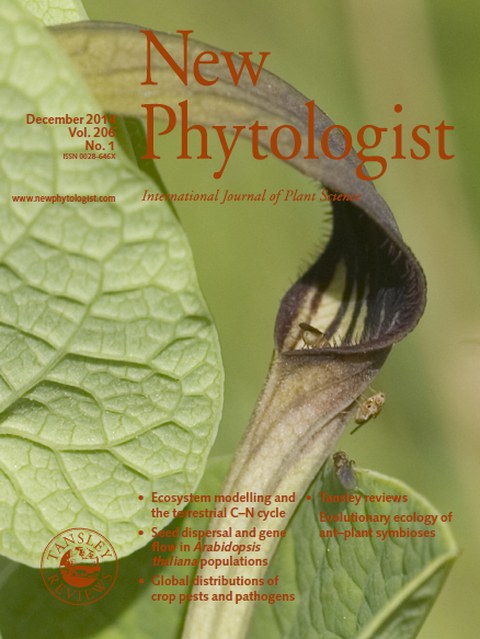Floral scent and deceptive pollination in Aristolochia
Our current knowledge on the deceptive strategies of Aristolochia is limited due to several factors: the massive number of fly species including their challenging systematics, often limited knowledge of the fly biology and the virtually unlimited number of potential mimicry systems that are caused by the extremely high ecological diversity of Diptera.
These gaps of knowledge are the focal points of our comparative and multidisciplinary approach. We aim to disentangle the complex plant-pollinator interactions in different West Mediterranean Aristolochia species by identifying the pollinators as well as the mechanisms of pollinator attraction and deception with strong focus on the nature and specificity of floral scents.
In this research project we combine integrative taxonomic, ecological and chemo-ecological methods. Pollinators will be identified by means of morphology and additionally will undergo state-of-the-art high-throughput molecular analysis. Flower scents will be analysed by chemical-analytical techniques. Electroantennographic detection will be used to identify biological active flower scent compounds and behavioural experiments contribute to the understanding of the attractiveness of flower scents and single chemical compounds.
Selected Publications:
-
Oelschlägel B, Nuss M, von Tschirnhaus M, Pätzold C, Neinhuis C, Dötterl S, Wanke S. 2015. The betrayed thief - the extraordinary strategy of Aristolochia rotunda to deceive its pollinators. New Phytologist 206: 342-351.
-
Oelschlägel B, von Tschirnhaus M, Nuss M, Nikolić T, Wanke S, Dötterl S, Neinhuis C. 2016. Spatio-temporal patterns in pollination of deceptive Aristolochia rotunda L. (Aristolochiaceae). Plant Biology 18: 928-937.
-
Rulik B., Wanke S., Nuss M., Neinhuis C. (2008) Pollination of Aristolochia pallida Willd. (Aristolochiaceae) in the Mediterranean. Flora 203: 175–184.
Contact:
Prof. Stefan Wanke E-Mail
Prof. Christoph Neinhuis E-Mail
Dr. Birgit Oelschlägel E-Mail
Collaborators:
Working group of Prof. Dr. Stefan Dötterl, Universität Salzburg
Prof. Toni Nikolic, University Zagreb
Dr. Matthias Nuß, Senckenberg Naturhistorische Sammlungen Dresden
Michael von Tschirnhaus, Universität Bielefeld
Funding:
DFG, Deutsche Forschungsgemeinschaft
FWF, der Wissenschaftsfond

